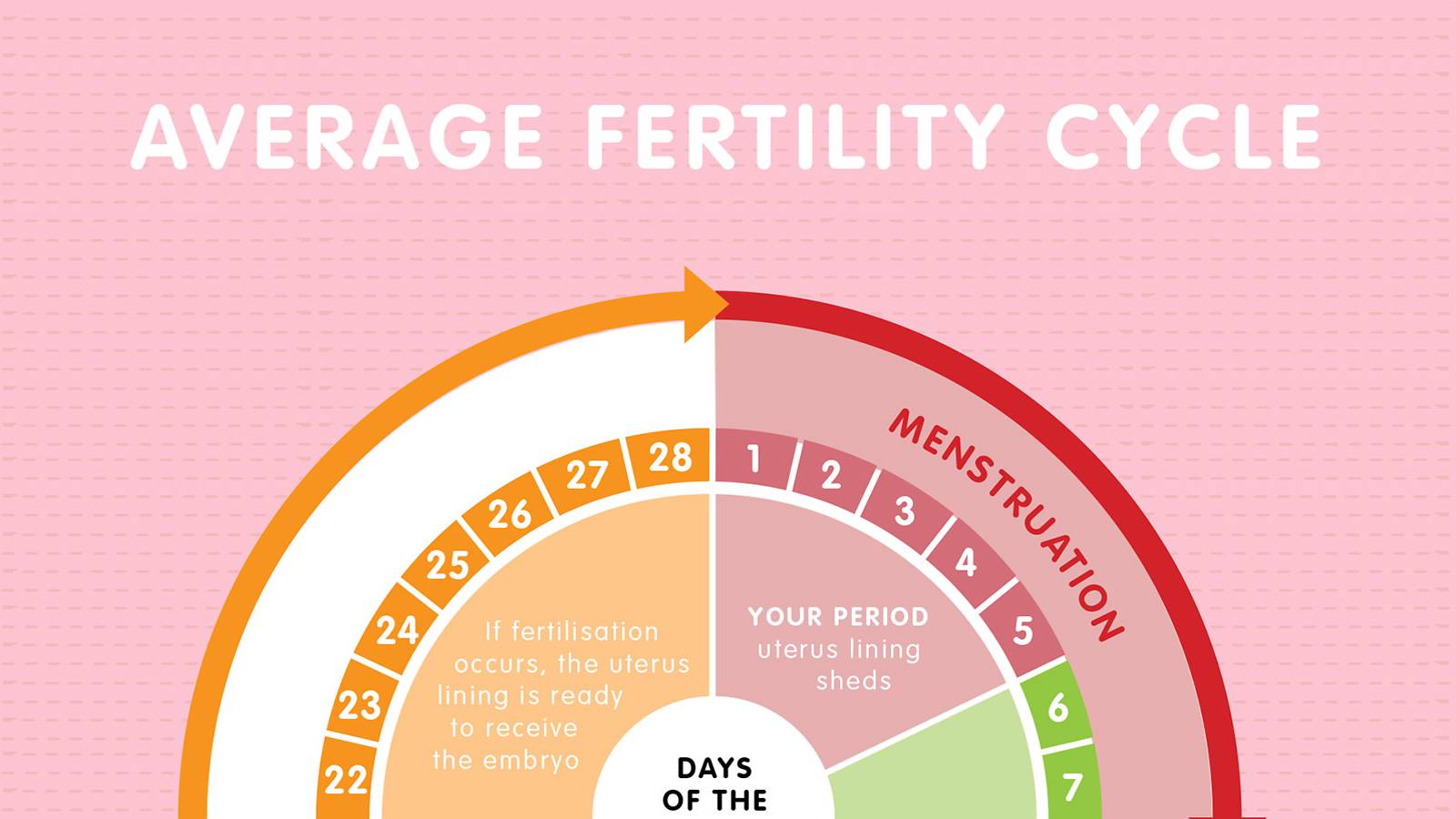When you’re trying for a baby, it’s useful knowing exactly when you’re most likely to conceive. Try this handy guide.
If you’re trying to have a baby, you’d probably refer to an ovulation cycle chart like the one above, or perhaps track it with a fertility app. So that you have the best chance of getting pregnant, you’ll probably make it a point to have sex during the ovulation days, though the “fertile period” is generally from day 8 to 19.
However, Dr Roland Chieng, medical director at Virtus Fertility Centre warns that such charts can be limiting. “Such charts are generally used to get maximum results with minimum effort,” he says. “But if you know that you are trying, then as a couple, you should be generally having more sex.”
Firstly, this would overcome the fact that ovulation does not come at a regular time every month. “Whatever means you use to test yourself, be it a rise in body temperature, or a test kit, the switch to the ovulation period can occur over 24 or 36 hours, and you can’t pinpoint that exact moment.”
“Studies have shown that with frequent ejaculations, the sperm quality will improve.”
In addition, no women’s cycles are the same. If your cycle is abnormal, say, you have a 40- or 60-day cycle as compared to a regular 28-day one, this means that you do ovulate just not often, and you can still get pregnant. So, instead of seeking treatment immediately, you can still try for a baby naturally. Dr Chieng adds, “The first thing you need to do is to throw out the calendar, throw out the testing kit, go home early, switch off your computers and phones, and have sex.”
Secondly, Dr Chieng points out that if any male factors come into play, for instance, if the sperm quality isn’t good, then more frequent intercourse helps. “Studies have shown that with frequent ejaculations, the sperm quality will improve.”
Infographic Paulyn Ng


Added pressure
Often, when a couple is “trying”, the man can feel so pressured to perform during the “fertile” window that he ends up in the clinic getting treatment for “sexual dysfunction”, when it really isn’t necessary.
“You’ll be surprised to know that many couples don’t have sex, till the app says that it’s okay to have sex,” notes Dr Chieng. “You can’t expect your partner to be like a tap that can just be turned on.”
Besides eliminating stress, it is usually enough that the couple ensure that they are healthy before trying to conceive ― which includes losing weight if they are obese, exercising more, and changing their diets and lifestyle. “The subsequent success rate is usually very high,” Dr Chieng says.
“Many couples don’t have sex, till the app says that it’s okay to have sex.”
When there are problems
Of course, there are also instances when the women don’t ovulate at all ― which means that they can’t conceive ― usually because of an underlying problem. Dr Chieng says, “In these cases, the treatment should be targeted at the underlying condition.” The most common reason is Polycystic ovary syndrome, or PCOS, where the woman’s hormonal system is out of balance. “Its severity ranges from mild, where you can ovulate once or twice a year, to severe, where ovulation completely stops,” says Dr Chieng.
This is where ovulation treatment comes in, in which you can be induced to ovulate more frequently to increase your chances of getting pregnant.
Photo: iStock
Like us on Facebook and check SmartParents regularly for the latest reads!
You may also like…
Basic checks before you consult a fertility doc
